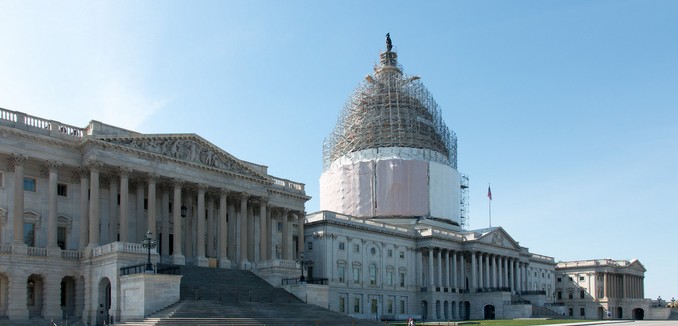The Obama administration acknowledged yesterday that classified side agreements were made between Iran and the International Atomic Energy Agency, setting the stage for a possible showdown with congressional critics over the role of the legislative branch in the nuclear deal, The Hill reported yesterday.
National security adviser Susan Rice on Wednesday acknowledged the existence of side agreements between Iran and the International Atomic Energy Agency. …
Rice said the documents between Iran and the IAEA are not public, but that the administration has been informed of their contents and will share details with members of Congress in a classified briefing on Capitol Hill. …
Republicans have been demanding to see the Iran-IAEA agreements and have criticized the administration for not yet making them public.
The Washington Post reported:
“There are two secret side deals, deals that are between the country of Iran and the IAEA,” Rep. Mike Pompeo (R-Kan.) said after emerging from a private session with Secretary of State John Kerry, Energy Secretary Ernest Moniz and Treasury Secretary Jacob J. Lew where House members were briefed on the Iran negotiations. “I just find that completely unacceptable. I don’t see how a member of Congress can vote for an agreement not knowing what the full scope of the agreement actually is.”
Pompeo and Sen. Tom Cotton (R-Ark.) sparked the wave of consternation about the deals on Tuesday, when they released a statement saying the IAEA had told them during a meeting in Vienna last week that they had private arrangements with Iran on inspections of Iranian military facilities and interests that could be tied to Iran’s nuclear program.
The plain language of the Iran Nuclear Review Act of 2015 would seem to indicate that the side deal is a part of the nuclear agreement and should therefore be provided by the administration for congressional review.
“(1) AGREEMENT.—The term ‘agreement’ means an agreement related to the nuclear program of Iran that includes the United States, commits the United States to take action, or pursuant to which the United States commits or otherwise agrees to take action, regardless of the form it takes, whether a political commitment or otherwise, and regardless of whether it is legally binding or not, including any joint comprehensive plan of action entered into or made between Iran and any other parties, and any additional materials related thereto, including annexes, appendices, codicils, side agreements, implementing materials, documents, and guidance, technical or other understandings, and any related agreements, whether entered into or implemented prior to the agreement or to be entered into or implemented in the future.
In an interview with The Wall Street Journal‘s Mary Kissel, Omri Ceren, The Israel Project’s managing director for press and strategy, talked about the administration’s efforts to avoid sharing these documents with Congress. The Israel Project publishes The Tower. The full interview is embedded below.
This is a very strange development, Mary, because as you know the Corker legislation mandates that the administration provides all relevant documents to Congress. Now the United States sits on the executive board of the IAEA. We have access to those things. The State Department is telling journalists this morning in Washington D.C. that they can’t be expected to turn over the documents to Congress because they don’t have the documents. That is not going to be sustainable. Lawmakers know better.
Last week, historian Walter Russell Mead observed that the administration’s effort to define the nuclear deal with Iran as an executive agreement and have it endorsed by the United Nations Security Council in order to force congressional approval was “essentially abrogating the treaty power of Congress.” Mead added:
That the President is blowing off this concession by Congress is a serious matter—more serious perhaps than the White House realizes. He is really requiring Congress to accept a permanent and significant diminution in its power for the sake of an Iran deal that few members view with enthusiasm. The precedent he is setting changes the Constitution, essentially abrogating the treaty power of Congress any time a President[ can get a Security Council resolution to incorporate the terms of an executive agreement.
This past Thursday, in a letter to President Barack Obama, Senators Bob Corker (R – Tenn.) and Ben Cardin (D. – Md.) raised concerns that allowing the UNSC to vote on the agreement before subjecting it to proper congressional review “would be contrary to your statement that ‘it’s important for the American people and Congress to get a full opportunity to review this deal…our national security policies are stronger and more effective when they are subject to the scrutiny and transparency that democracy demands.’”
[Photo: Martin Kramer / Flickr ]




